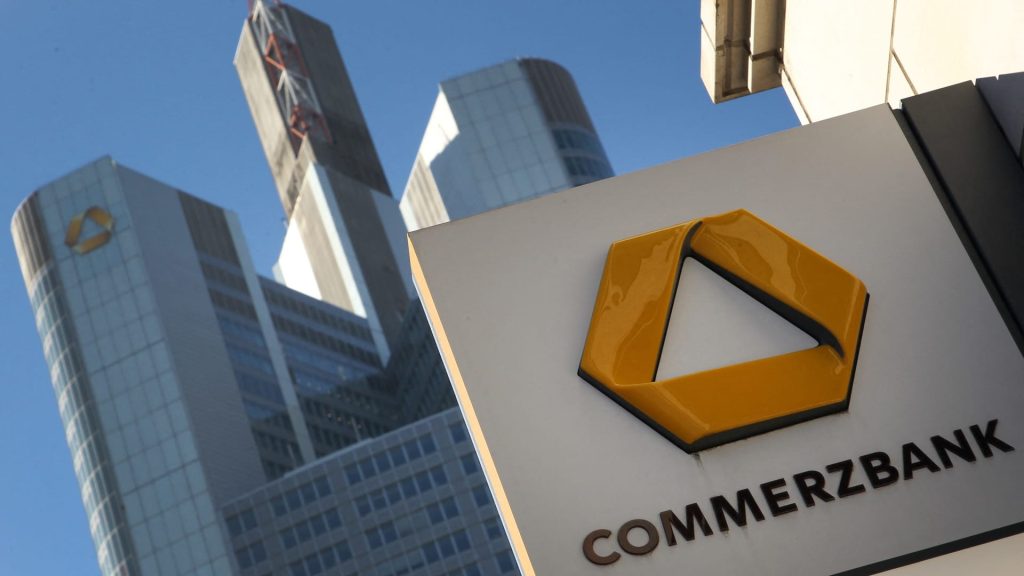Germany’s second-largest lender Commerzbank on Thursday announced it will eliminate 3,900 full-time positions by 2028, largely in its native Germany, as it unveiled a spate of new strategic targets.
The job cuts will be accompanied by increases in staffing in “selected areas” such as in international locations, resulting in a broadly constant global headcount of 36,700, the bank said in its strategic update.
Commerzbank CEO Bettina Orlopp told CNBC’s Annette Weisbach after the news that it was important the job cuts were done in a “very social, responsible way.” She added that she believes the reductions can take place “without weakening the morale, which is actually really, really good.”
The lender anticipates around 700 million euros ($730.7 million) of before-tax restructuring costs in 2025, targeting a net result of 2.4 billion euros after these charges for the year. It plans a payout ratio of more than 100% over the 2025-2028 period, after the deduction of restructuring costs and Additional Tier 1 (AT 1) bond coupons.
The bank also raised its longer-term revenue goals to 3.8 billion euros in 2027, up from a previous forecast of 3.6 billion euros, and said it is now targeting a higher return of tangible equity rate — a profitability metric — of 13.6% in the year, from 12.3% previously.
Commerzbank had disclosed its “record” annual performance two weeks before the scheduled release of its financial results, in a bid to fall in step with German legal requirements when a company’s capital return significantly exceeds the expectations of capital markets.
At the time, it said net profit hiked by 20% to a forecast-beating 2.68 billion euros ($2.78 billion) in 2024, outlining plans to repurchase 400 million euros of shares and boost its dividend payout to 0.65 euros per share, compared with 0.35 euros per share in the previous year. Full-year revenue in 2024 came in at 11.1 billion euros, compared with 10.461 billion euros in 2023, the bank said Thursday.
“We have delivered, consequently, over the past four years, what we have promised, and we intend to do that also in the coming years,” Orlopp said Thursday.
Deutsche Bank analysts said the “relatively linear” planned progress to Commerzbank’s new mid-term target is a “positive,” noting the spate of “bullish new targets.”
Commerzbank shares are up 21.8% year to date and ended the day 1.6% higher.
‘Activist investor’
Commerzbank has been advocating its case to stand alone since last year’s surprise build of a stake by UniCredit fueled market talk that Italy’s second-largest lender could be on the hunt for a cross-border takeover. UniCredit currently holds a direct 9.5% stake and a 18.5% stake via derivatives in Commerzbank.
The German government has opposed the prospect of such a cross-border consolidation, with Finance Minister Jörg Kukies slamming UniCredit’s “very aggressive, very opaque” bid in a CNBC interview in January.
Split between the German overture and a takeover offer for Italian lender Banco BPM, UniCredit CEO Andrea Orcel has kept his cards close to his chest over his company’s ultimate intentions regarding Commerzbank.
Speaking to CNBC on Thursday, Orlopp said that Commerzbank has a dialogue with UniCredit, which it views as a shareholder.
“At the moment, we can only treat them as investors, and that we do, and we are very open to answer their questions,” she noted. “Beside that, we said, if we want to talk about anything else, like a combination, given that we have a situation where we have one side who has secured nearly 30% of the shares in our company, we expect kind of an outline draft of what they think they would like … to achieve with respect to the structure, with respect to the financials, and then we are also open to talks.”
UniCredit “feels a little bit like an activist investor, yeah, that’s true. It’s all about style,” Orlopp added.
Speaking to CNBC this week after UniCredit reported a fourth-quarter profit beat and guided a slowdown in 2025 revenues, Orcel stressed that Commerzbank remains an investment — but also that he is “quite optimistic of being able to convince everybody, not only on the premises of how we got to this investment, but also that a combination between the two banks has massive value to be created, not only for the two banks and the stakeholders, but also for Germany and for Europe.”

